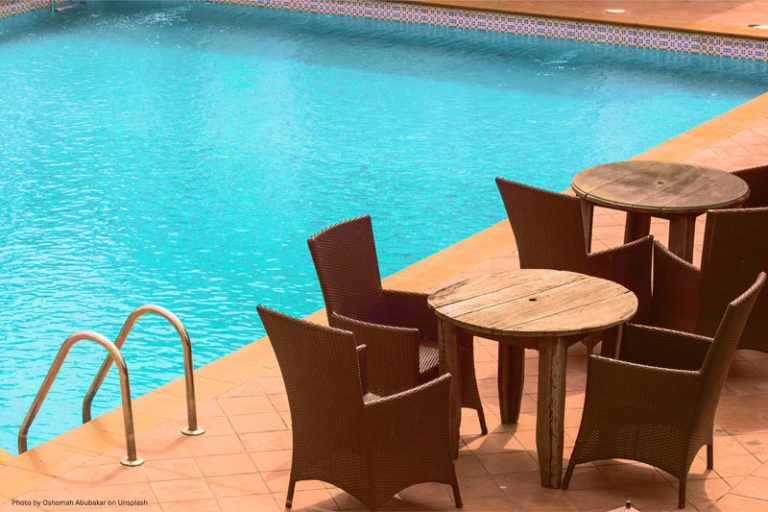Saltwater Versus Regular Water Pools: What Is The Difference?
Having a pool is a wonderful way to relax during the week or on the weekend. It gives you a chance to experience the outdoors without stepping foot off your property. However, deciding on what type of pool to get can depend on many factors. One of the most significant decisions you have to make is the type of pool, saltwater or chlorine pool.
Each provides some advantages and disadvantages. Let’s dive into how the differences impact your costs and maintenance.
Saltwater Pools
A saltwater pool is chlorinated using a particular piece of equipment called a salt chlorine generator. You can even use regular salt in this type of pool as long as it has few impurities. The point of the chlorine is to sanitize the pool.
When the pool water comes into contact with the salt chlorine generator, the machine turns the salt in the water into hypochlorous acid. This is also produced when you add chlorine to a pool. The difference is that with a saltwater pool, the hypochlorous acid recombines with the sodium in the water and turns back into salt.
Since salt does not evaporate, you do not need to add salt or chlorine to the system regularly. There is also a low risk of chloramine buildup, often experienced in traditional chlorine pools.
The advantage of a saltwater pool is the lower annual costs and the fact that these pools are gentler on the skin, eyes, and swimwear due to the lower chlorine content. Your skin will also not feel as dried out since the salt water will not strip your natural oils from your skin. However, it will use more energy than a chlorine pool since you use a salt cell and pump more often. Finally, you have the environmental benefits. Your saltwater pool will not give off chloramines into the air, and you will not have to store chlorine, which is a dangerous chemical.
While the initial costs for installing a saltwater pool are higher, the long-term costs can be significantly lower. Using equipment specifically designed for saltwater pools to minimize corrosion would be best.
Chlorine or Regular Water Pools
Chlorine pools are more commonly used and require regular maintenance to balance the chemicals. While these pools often have a lower initial cost, the chemicals, including chlorine, can lead to higher costs on an annual basis.
Regular pools also require you to be diligent about cleaning to avoid algae buildup and to ensure your chlorine levels remain where they need to be. Energy consumption with a regular pool is less because they do not use saltwater technology.
On the other hand, a regular pool also can dry out your skin, irritate your eyes, and increase the wear on your swimsuits. Saltwater pools are often the right choice when comfort is the priority.
In summary, saltwater pools offer a more natural feel and potentially lower costs in the long term. In contrast, regular chlorine pools are the traditional choice that requires diligent maintenance to keep your pool in excellent working order.
At Ramos Pools, we provide a quality-built pool that fits your needs, regardless of whether you prefer a saltwater pool to a traditional one. Contact us today to schedule a consultation and learn about the options available for your backyard.








